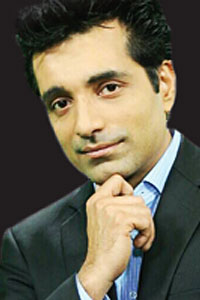
The move by the National Legislative Assembly (NLA) to possibly remove the current members of the Election Commission (EC) comes as a surprise to many in the country. The NLA has proposed that the five commissioners, appointed under the defunct 2007 constitution, vacate their posts after the new EC organic law comes into effect.
Lt Gen Phisanupong Phutthawong, spokesman for the NLA committee scrutinising the bill, said the current EC members would remain in place until a new batch of commissioners take office.
The move was also backed by the 2016 charter writer Meechai Ruchupan, who said it was within the boundaries of the constitution, although many political parties came out to say that such moves were inappropriate.
The so-called "set zero" of the EC comes just about a year before elections are due to take place and raises many questions about what the new EC composition will entail.
The unhappy political parties should consider what has been accomplished by the current EC members during their term.
These five members assumed their positions on Dec 13, 2013, at the height of the colour-coded political crisis that had divided the country. Their appointment came just after then prime minister Yingluck Shinawatra had dissolved parliament on Dec 9 amid mounting street protests against the blanket amnesty that her government had offered to bring about reconciliation in society.
The EC members got their hands dirty from the very start when the protest led by the People's Democratic Reform Council (PDRC) tried to block registration of the member of parliament in Bangkok's Din Daeng district -- a situation that turned bloody.
Then the situation got out of control as the Feb 2 election date was announced and the EC recommended that the government review the decision to hold the polls.
On election day hundreds of people were harassed and beaten for exercising their democratic rights as citizens, even though they might have gone only to vote for nobody as the opposition party, the Democrats, had opted to boycott the polls.
I was one of those who went to exercise their rights on that Sunday morning. Fearful that I could face harassment, I still decided to cast my ballot paper. The reason is simple. I believed I would not have the right to criticise or go on the streets to protest against the government in power had I not exercised my rights in the first place.
But while on the way to vote I wondered what on earth the EC was doing. Why could it not control the harassment? If the EC could not organise the election, why was it in such a position in the first place?
Eventually the election was nullified by the Constitutional Court and one of the reasons cited was the inability to hold the polls.
Was it the then caretaker government's fault that polls could not be held in a proper manner or was that the job of the EC? I leave that question for you to answer.
Then all things went silent until May 2014 when Gen Prayut Chan-o-cha undertook the coup and halted all political activities.
Fast forward to 2016 and once again the dormant EC was back in action, this time to organise the referendum on the 2016 Constitution on Aug 7.
As they say, actions speak louder than words. The actions of the EC were evident from the start as these very five members were the ones who agreed to all the terms set forth by the military government.
A referendum that should have allowed all voters to get information and views from all parties was restricted by the EC to only what the mouthpiece of the military government said, and any dissidence was not tolerated. People with opposing views were warned and even jailed, creating an atmosphere of fear of breaching the line drawn by the EC at the behest of the government.
All this led to the outcome of the referendum in which more than 60% of people voted in favour of the charter.
These were the only two major jobs undertaken by this set of EC members and both were utter failures when one considers the norms of democratic government. It begs the question why these inefficient EC members still command support among political parties.
Their remaining in office would not make a difference because they would only follow their marching orders from the military government. They would be no different from the people the government would appoint. Is it not time to try something different and get some new blood who may have a hint of ethics to do the job right?
Umesh Pandey is Bangkok Post editor.
